

UNWTO announces the finalists of the UNWTO Awards for Excellence and Innovation in Tourism
UNWTO has announced the finalists of the 13th edition of the UNWTO Awards for Excellence and Innovation in Tourism. The 12 finalists were selected among 139 applicants from 55 countries. The winners will be announced on 18 January 2017 at the UNWTO Awards Ceremony, organized for the fourth consecutive year in collaboration with Madrid International Tourism Fair (FITUR / IFEMA).
The Awards recognize excellence and innovation in tourism in four categories: 1) Public Policy and Governance, 2) Enterprises, 3) Non-Governmental Organizations and 4) Research and Technology.
“The UNWTO Awards reflect the efforts done worldwide by the tourism community to foster innovation and the need of the sector to advance towards a more sustainable and responsible future” said UNWTO Secretary-General Taleb Rifai. “In the last decade the Awards have shown the sector’s high commitment to this goal, which this year has a special meaning as we celebrate the International Year of Sustainable Tourism for Development 2017,” he added.
Initiatives from Belgium, Costa Rica, the Dominican Republic, Egypt, India, Italy, Jordan, Mexico, Netherlands, Portugal and Spain compile the list of final candidatures from which the Awardees will be announced on 18 January 2017.
Finalists of the 13th edition of the UNWTO Awards for Excellence and Innovation in Tourism
1. UNWTO Award for Innovation in Public Policy and Governance
– Innovative use of e-tourism/Egypt’s strategy 2020, Advisory Council of the Ministry of Tourism, Egypt
– Invat.Tur, Valencia Region Tourism Board, Spain
– Social progress index in tourism destinations in Costa Rica, Costa Rica Tourism Board, Costa Rica
– Strategies for development of sustainable tourism in Guanajuato, Guanajuato State Ministry of Tourism, Mexico
2. UNWTO Award for Innovation in Enterprises
– Adding color to lives, Carlson Rezidor Hotel Group, Belgium
– Ecobnb: The community of sustainable tourism, Ecobnb, Italy
3. UNWTO Award for Innovation in Non-Governmental Organizations
– Culture heritage: tools for sustainability of a World Heritage Site, Petra National Trust, Jordan
– Inclusion of micro- and small enterprises in the sustainable tourism supply chain, Fundación Tropicalia, Dominican Republic
– Govardhan Eco Village, India
4. UNWTO Award for Innovation in Research and Technology
– Carmacal carbon calculator for travel packages, Dutch Association of Travel Agents and Tour Operators (ANVR), Netherlands
– Encyclopedia of tourism, Ulysses Foundation, Spain
– IP Tourism 4.0, Turismo de Portugal, Portugal
The 12 finalists will share their expertise and experiences at the UNWTO Awards Forum on 16 January 2017, in Madrid.
Two days later, on 18 January 2017, the winners of each category will be announced at the UNWTO Awards Ceremony and Gala dinner.
Additional information:
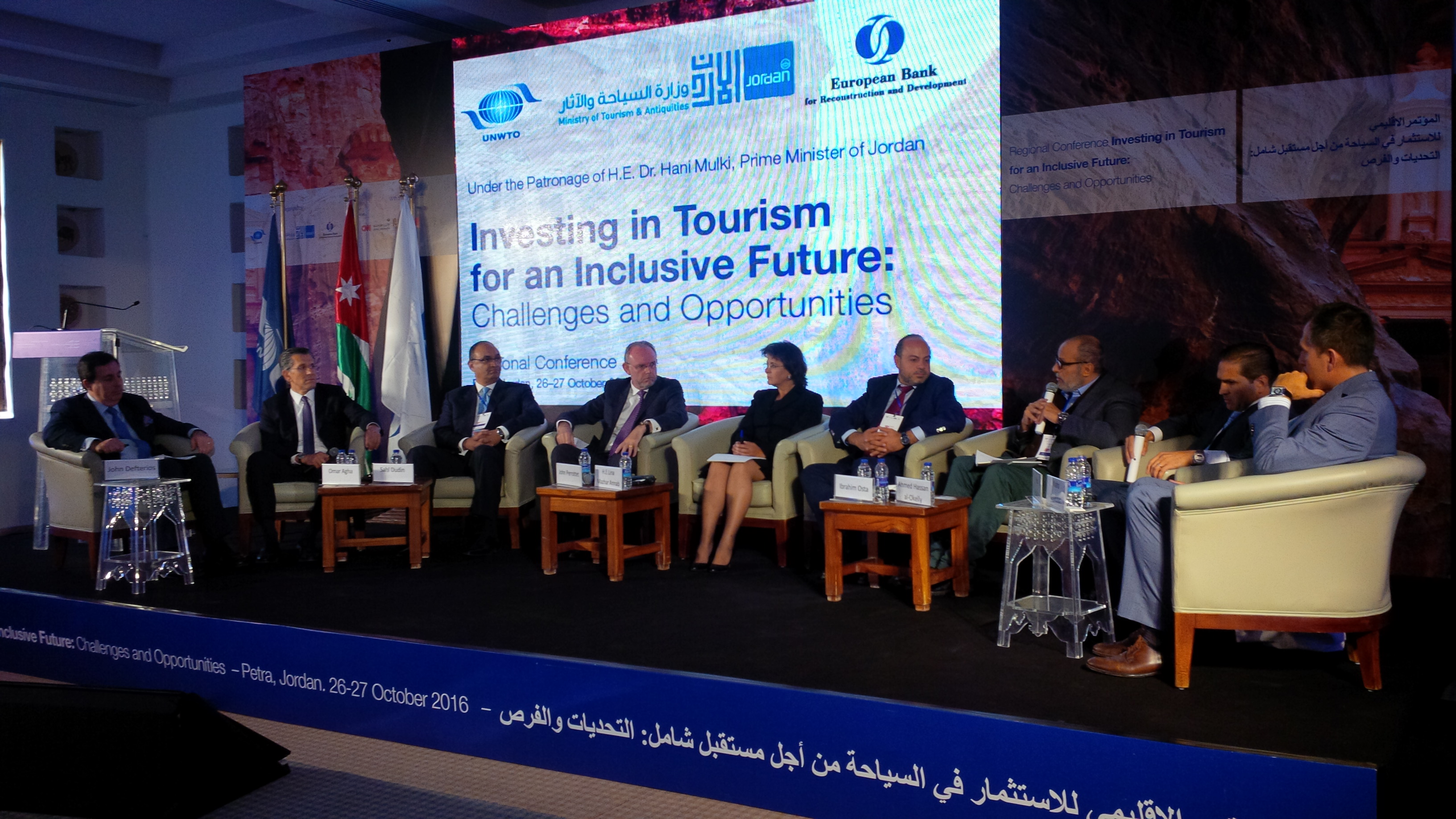
Tourism Middle East: The Final Petra Declaration is now out
On October 26 and 27 tourism leaders from the Middle east participated in the jointly organized by the European Bank for Reconstruction and Development (EBRD), the Ministry of Tourism and Antiquities of Jordan and the World Tourism Organization (UNWTO), brought together tourism stakeholders from the public, private, banking, investment and development sectors, who are working in the Southern and Eastern Mediterranean (SEMED) region and are driving tourism development on a national, regional or global level to identify the challenges and best-practices that are specific to the region, with a view to drafting comprehensive recommendations for tourism development in the future encompassing the following three priority areas:
- Provide access to training and employment opportunities;
- Enhance resource and energy efficiency
- Strengthen local Micro, Small and Medium Enterprises
eTN Publisher was one of the panelist contributing to this important event.
The Final declaration known as the Petra Declaration was now released by uNWTO it reads:
Declaration on Investing in Tourism for an Inclusive Future
PETRA DECLARATION
We, the representatives of the tourism administrations, international and regional organizations, investment and banking sector, and the private sector gathered at the Regional Conference on Investing in Tourism for an Inclusive Future: Challenges and Opportunities, organized by the European Bank for Reconstruction and Development (EBRD), the Ministry of Tourism and Antiquities of the Kingdom of Jordan, and the World Tourism Organization (UNWTO) in Petra, Jordan, on 26–27 October 2016, Recalling
1. The United Nations Educational, Scientific and Cultural Organization (UNESCO) Convention concerning the Protection of the World Cultural and Natural Heritage, adopted on 16 November 1972, which considers that “parts of the cultural or natural heritage are of outstanding interest and therefore need to be preserved as part of the world heritage of mankind as a whole”.
2. The UNWTO Global Code of Ethics for Tourism, approved by the UNWTO General Assembly in 1999 and endorsed by the United Nations (UN) General Assembly in 2001, which comprises a comprehensive set of principles as guideline for responsible and sustainable tourism, including the provision of fair and quality training and employment opportunities in tourism.
3. The UN General Assembly resolution A/RES/64/14 of 22 December 2009 that expresses the support for the establishment of the UN Alliance of Civilizations as a platform for intercultural dialogue, understanding and cooperation.
4. The UN General Assembly resolution A/RES/66/288 of 27 July 2012 that endorses the outcome document of the UN Conference on Sustainable Development, The Future We Want which emphasizes that “well-designed and managed tourism can make a significant contribution to the three dimensions of sustainable development, has close linkages to other sectors, and can create decent jobs and generate trade opportunities”;
5. The UN General Assembly resolution A/RES/69/233 of 19 December 2014 on the Promotion of sustainable tourism, including ecotourism, for poverty eradication and environment protection which recognizes that “sustainable tourism, including ecotourism, represents an important driver of sustainable economic growth and decent job creation, that it can have a positive impact on income generation and education, and thus on the fight against poverty and hunger, and that it can contribute directly to achieving the internationally agreed development goals”;
6. The UN General Assembly resolution A/RES/70/1 of 25 September 2015 on Transforming our world: the 2030 Agenda for Sustainable Development, which adopts the 17 Sustainable Development Goals (SDGs), of which three specifically mention tourism.
7. The UN General Assembly resolution A/RES/70/193of 22 December 2015, which proclaimed 2017 the International Year of Sustainable Tourism for Development and encourages the UN 2 system and all other actors to support sustainable tourism at all levels, including international cooperation, as an efficient instrument to contribute to sustainable development, especially addressing global challenges such as poverty eradication, environment protection, and economic empowerment of women and youth;
8. The T20 Tourism Ministers’ Declaration of 30 September 2015 on Tourism, SMEs and Employment – Policies to Stimulate Job Creation and Inclusiveness, which recognizes that “the competitiveness of tourism depends on the quality of the service and thus the sector requires increased investment in human resources development, including education and vocational training, as well as improvement in working conditions and social dialogue”;
9. The 10-Year Framework of Programmes on Sustainable Consumption and Production Patterns (10YFP), notably the 10YFP Sustainable Tourism Programme that encourages the shift towards green growth and sustainable development.
Considering that
10. Tourism is one of the fastest growing socio-economic sectors: in 2014 tourism was the third world export earning category — after fuels and chemicals — accounting currently for an estimated 10% of world GDP, 1 in 11 jobs, 7% of global trade and 30% of trade in services;
11. Given its complexity of multiple horizontal links with other economic sectors, tourism can generate development opportunities along the entire tourism value chain, diversifying the economy and stimulating entrepreneurship, thus accelerating structural transformation and providing opportunities to stimulate other productive sectors in goods and services related to tourism demand;
12. Tourism is featured in three of the 17 SDGs, namely Goal 8, 12 and 14 on inclusive and sustainable economic growth, sustainable consumption and production, and the sustainable use of oceans and marine resources, respectively, and yet has the potential to contribute to sustainable development in general in view of its cross-cutting nature;
13. Tourism is also well-positioned to fight poverty through creation of entrepreneurship opportunities as well as full and productive employment and decent work for all, particularly youth, women, indigenous, local and disadvantaged communities;
14. Resource efficiency in tourism operations and adoption of sustainable consumption and production patterns will enhance the sector’s competitiveness while contributing to address climate change imperatives in line with SDG 12 and SDG 13 respectively.
15. Tourism development, when efficiently planned and well managed, has the potential to contribute to environmental conservation efforts and poverty reduction by focusing on biodiversity assets;
16. As tourism is based on human interaction between visitors and host communities, it can efficiently contribute to the promotion of cultural links to improve and promote intercultural and international understanding, mutual respect and tolerance between nations and cultures, as well as between developed and developing countries and regions by enhancing cooperation at all levels and thus contribute to a culture of peace;
17. Despite growing recognition of tourism as an instrument for development, the sector often lacks firm integration in national development plans and is considerably underrepresented in international aid flows.
18. There is a growing demand from tourism organizations and stakeholders for a more systematic application of monitoring, data collection and detection of early warning signals to support evidence-based decision making processes and to underpin tourism’s catalytic capabilities in contributing to sustainable and resilient development.
Call upon
19. The private sector, investors, financial institutions, governments, academia and civil society to ensure that tourism development is based on responsible and sustainable planning, evidencebased decision making, and the involvement of all stakeholders, including the host communities and disadvantaged groups of society;
20. Governments, in partnership with the private sector, investors and financial institutions to provide access to fair and quality training and employment opportunities in order to address the inclusion gaps concerning youth and women, and to reduce local and regional employment and skills disparities;
21. Governments to incentivize entrepreneurship in relevant economic sectors related to the tourism value chain and to generate backward and forward linkages, as well as a regulatory framework, in order to fully engage local Micro, Small and Medium Enterprises (MSMEs) in the complex tourism value chain;
22. Governments, the private sector and all other relevant stakeholders, to promote innovation in tourism products, business models, and management, to embrace what is referred to as “sharing economy”, “collaborative economy” or “on-demand suppliers” and push forward the transformation and upgrading of the tourism sector in order to improve its quality and vitality;
23. Governments, in partnership with the private sector, to introduce improved national skills standards that reflect the requirements of private sector employers in the regions.
24. Governments, the private sector and all other relevant stakeholders to enhance local sourcing of agricultural, fisheries and forestry products to offer a genuine food experience to tourists, and to promote typical food products and handicrafts as assets of the destination.
25. Governments, the private sector and all other relevant stakeholders to promote diversification of local destinations, assets and types of tourism.
26. Governments to integrate and prioritize sustainable consumption and production in national planning and policy making, including tourism, to accelerate the shift towards more sustainable consumption and production patterns;
27. Governments to take a holistic approach and promote regional integration by developing cross-border tourism products and initiatives that can present beneficial opportunities for regions as a whole in the international market, while serving individual destinations’ economies, environments, and social factors;
28. Governments, the private sector and all other relevant stakeholders, to support sustainable tourism development and foster investment in infrastructure and technology that helps to improve resource efficiency and decouple economic growth from resource use and environmental degradation;
29. The private sector to act in line with the principles of the Global Code of Ethics for Tourism and advance Corporate Social Responsibility (CSR) initiatives;
30. Governments, the private sector and education institution to promote the UNWTO TedQual Certification Programme—Themis Foundation, which defines international quality criteria and standards to ensure the quality improvements in hospitality and tourism education programmes in compliance with the principles and practices of the UNWTO Global Code of Ethics for Tourism”
31. Governments, the private sector, investors and financial institutions to step up efforts in building an inclusive, sustainable and resilient tourism sector
32. Governments, the private sector and academia to establish data collection tools to capture and measure the social impact of MSMEs on local economies.
33. The global donor community, investors and financial institutions to recognise the potential of tourism to contribute to sustainable and inclusive growth and to increase investment for the sustainable development of tourism.
34. The UN System, and UNWTO in particular, to intensify efforts in advocating for tourism as a tool for development, and to trigger changes in policies, business practices and consumer behaviour on the occasion of the International Year of Sustainable Tourism for Development, 2017.
35. Governments to promote the message of peace and understanding as a prerequisite for sustainable development through tourism, fostering cross-cultural exchange and harmony between peoples and civilizations; and to support efforts to enhance safety and security and respect for human rights.
36. All tourism stakeholders to advance efforts in enabling and on-boarding hyperlocal technologies to enhance the travel experience.
37. All tourism stakeholders to recognize the role of tourism in contributing to greater understanding and respect among civilizations, cultures and religions, in accordance with the principles of the UN Alliance of Civilizations.
38. All tourism stakeholders to recognize the need for respecting, protecting and conserving cultural and natural heritage—as well as ensuring its transmission to future generations—in line with the UNESCO Convention concerning the Protection of the World Cultural and Natural Heritage and the Sustainable Development Goals.
Pledge to
39. Use and promote tourism as a tool for contributing to the achievement of the 2030 Agenda for Sustainable Development;
40. Contribute to building an inclusive and sustainable tourism sector that is based on human rights, social and economic justice and equality;
41. Enhance and actively engage in the dialogue between the private sector, governments and educational providers in improving national skills standards and training provision in the tourism sector;
42. Foster public-private partnerships and increase investment in tourism, particularly related to infrastructure, product and human resource development, financing, research and technology;
43. Create opportunities for high-quality on-the-job training to foster school-to-work transition for young people entering the tourism and hospitality sectors through partnerships with local vocational schools, colleges and training providers;
44. Strengthen vocational and technical level training as well as innovation and research in higher education;
45. Create and implement quality training and career opportunities for all, including youth, women, indigenous and local populations, and disadvantaged groups, that contribute to an inclusive and sustainable growth of local communities;
46. Ensure equal pay for equal work and deliver jobs that are aligned with the principles of the International Labour Organization’s Decent Work Agenda;
47. Enhance access to financing for MSMEs in tourism to enable their increased participation in local and global value chains;
48. Undertake all efforts in continuously improving the sustainability of the tourism sector and ensure its resource efficiency at all levels;
49. Strengthen efforts to generate sufficient funding and investment in tourism, including to support competitiveness of MSMEs; Extend our sincere gratitude to our host, the Government of Jordan, for its warm hospitality and amiable support for the organization of the Regional Conference on Investing in Tourism for an Inclusive Future, as well as its significant contribution to the advancement of the sustainable tourism agenda as a driver for change and an inclusive future.
Petra, 27 October 2016
Final Petra Declaration (in English)
Final Petra Declaration (in Arabic)
Conference’s booklet (including provisional programme, foreword and speakers’ bio notes in English)
Conference’s booklet (including provisional programme in Arabic)
http://https://youtu.be/1mErCrPC7Oc
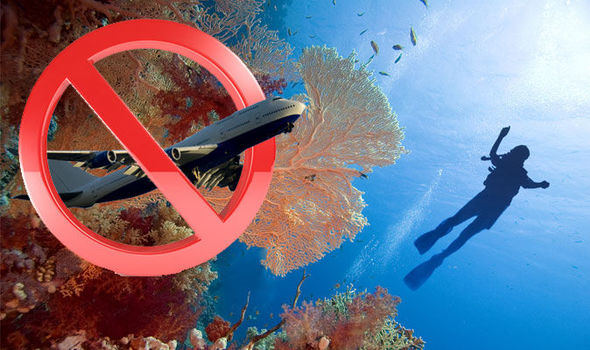
WTTC and UNWTO call on UK to lift flight ban to Sharm el Sheikh
In a letter to Prime Minister Theresa May, David Scowsill, President & CEO, WTTC, and Taleb Rifai, Secretary-General, UNWTO, stressed the importance of resuming operations to the Egyptian coastal resort as the current travel advisory is having devastating effects on the country’s economy and social stability.
The ban has been in place since a Metrojet airline flying from Sharm el Sheikh to St Petersburg crashed in the Sinai Desert in October 2015.
They said: “Travel & Tourism is vital to Egypt’s economy and social peace, contributing 11% of the country’s GDP and 2.6 million in jobs in 2015. The reduction of visitors has created huge employment losses. The country’s biggest concern is how the lack of employment opportunities, especially for young men and women, has instilled a desperate disposition and thus vulnerability to radicalisation or to fleeing on a refugee boat.”
Egyptian authorities have taken significant measures to step up the level of security not only in the airport but in the surrounding area as well. These improvements now meet the safety standards as indicated by the UK Department for Transport. All other countries, including Germany and Russia, have allowed their airlines to start flying to Sharm el Sheikh again.
They concluded: “It is devastating to see the impact the current UK travel advisory has on Egypt and on the young workforce in particular. We call on the UK government to review the advisory and allow commercial aircraft to fly to Sharm el Sheikh and thereby help restore the country’s Travel & Tourism sector’s GDP and employment provision.”
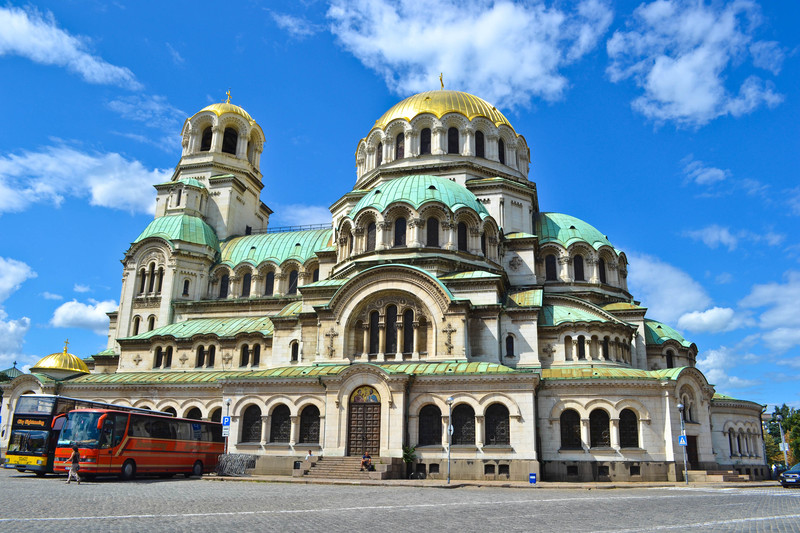
UNWTO congress to discuss the links between cultural heritage and creative tourism
The World Tourism Organization and the Ministry of Tourism of the Republic of Bulgaria will jointly host the International Congress on World Civilizations and Creative Tourism on 29 November – 1 December 2016 in Sofia, Bulgaria. The Congress will discuss how creative tourism can play a significant role in safeguarding and promoting tangible and intangible heritage as well as in generating socio-economic benefits.
In 2015, almost 1.2 billion international tourists travelled the world and UNWTO forecasts continued growth in the years to come. UNWTO estimates that cultural tourism accounts for around 40% of all international tourist arrivals as per the report ‘Tourism and Culture Synergies’.
The conference will address how world civilizations can be brought back to life through the collaboration with creative industries – such as architecture, design, arts, technology and science – while contributing to sustainable tourism development.
A high‑level debate moderated by CNN’s Max Foster will gather 20 ministers of tourism from around the world to discuss how effective partnership models can be developed to contribute to safeguarding and promoting world civilizations, while creating socio-economic benefits for local communities.
In 2015, Bulgaria received 7 million international tourists generating US$ 3.1 billion in exports. It is expected that this year the country, whose population is around 7 million, will welcome more than 8 million international tourists – up from 6 million in 2010. These results reflect the commitment of Bulgaria to tourism development, including the creation in 2014 and for the first time of a dedicated Ministry of Tourism.
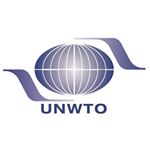
Ilunion Hotels receives UNWTO Ethics Award
The World Committee on Tourism Ethics (WCTE) has awarded Ilunion Hotels with the UNWTO Ethics Award. The Award distinguishes Ilunion Hotels for its work in the area of accessible tourism for all and its contribution to change attitudes, break down social barriers and make the accommodation industry more inclusive.
This new category of the UNWTO Awards, the flagship awards of the World Tourism Organization, aims to recognize tourism companies and associations for their commitment and work in the promotion and implementation of the principles of the Global Code of Ethics of Tourism.
Ilunion Hotels’ pioneer policies and outstanding commitment in the area of universal accessibility is applied throughout its business model, comprising not only customers with disabilities and other access needs, but also its employees and suppliers. For these reasons, the Jury considered that Ilunion Hotels represents a virtuous, innovative and replicable best practice of corporate social responsibility.
The Jury of the UNWTO Ethics Award is composed of the Chair and members of the World Committee on Tourism Ethics, an independent and impartial body responsible for overseeing the implementation of the Global Code of Ethics for Tourism.
The 13th UNWTO Awards Ceremony will take place on 18 January 2017 in Madrid, in collaboration with the International Tourism Trade Fair (IFEMA/FITUR).

Climate Change is still Existential – US election doesn’t change science
The president of the International Coalition of Tourism Partners (ICTP), Professor Geoffrey Lipman is alarmed. In his blog addressed to ICTP members he published his concern about the President Elect of the United States of America, Donald J Trump. Professor Lipman is viewed as a senior authority in the global travel and tourism industry.
Previously he was the first CEO of the World Travel and Tourism Council (WTTC), and assistant secretary general of the United Nations World Tourism Organization (UNWTO). He is now the president of ICTP, a Hawaii, Brussels, Seychelles and Bali based membership organizations with tourism board and stakeholders in 114 countries.
The ICTP president has this to say:
“They say that a week is a long time in politics. It’s been just over a week since Donald J. Trump won the most powerful job in the world.
This election gave the most powerful job in the world to a man who denies climate change (as a Chinese hoax), says he will rip up the Paris Agreement, not put any US money into the Global Climate Fund, emasculate at best the EPA (Environment Protection Agency) and will take the shackles off the US (and hence global) fossil fuel sector.
I have no rights to protest the overall policy line of the President – elect of the United States, but as a part of humanity, I have a duty to oppose his disastrous climate positions.
We need the Paris Accords – a bare minimum of global climate leadership towards a low carbon economy. We need smart decarbonization regulation. We need a sharp shift towards renewables and away from fossil fuel. We need market based carbon pricing and new energy incentives. We need a 2050 “No Carbon Aviation Moon-shot”.
As I wrote in my last blog “this is just the start of a 3-decade carbon detox that will require a new dedication from every stakeholder, a new ability to think outside the box and to embrace new ways of doing business.”
Now, even more than before, with an existential climate change believer replaced by a denier in the White House, we must intensify the pro Paris mindset and find ways to preserve and strengthen the Accords.
A week ago we saw SUN, the Strong Universal Network, simply as a means to help travel destinations and their stakeholders keep a focus on climate resilience and move to a green growth transformation path. Now it’s part of the Paris Accords defense system.
Maurice Strong – in whose memory SUN is fashioned and who passed away a year ago would approve of the additional emphasis – he spent his life pushing for long term action on Sustainable Development and fighting humbug. In his latter days, he targeted climate change as the biggest threat to humanity and an existential challenge.
Every week the threat gets larger.
This week I’m addressing the Asia Pacific Eco-Tourism Summit in Tasmania and it’s a message I shall be delivering. Geoffrey H. Lipman, President ICTP and co-founder SUN.”
ICTP is a global membership organization of travel and tourism stakeholders and destinations with a common goal of Green Growth + Quality = Business. The International Coalition is based in Hawaii, Brussels, Seychelles and Bali with members in 114 countries.
More information http://www.ictp.travel

UNWTO supports Sudan´s Tourism Development
UNWTO Secretary General, Taleb Rifai, has expressed the commitment of the World Tourism Organization (UNWTO) to support Sudan’s tourism development during his recent official visit to Sudan. The visit coincided with a three-day regional executive training on crisis communication in tourism organized by UNWTO and the UNWTO.Themis Foundation (Khartoum, Sudan, 15-17 November, 2016).
Meeting with the President of the Republic of Sudan, H.E. Omar Hassan Ahmad al-Bashir, to present the ‘Open Letter on Travel and Tourism’, a campaign promoted jointly by UNWTO and the World Travel and Tourism Council (WTTC) to raise awareness of the value of tourism to development, Mr. Rifai reiterated the potential of the tourism sector in creating new opportunities for the people of Sudan.
The President expressed Sudan’s appreciation for the support of UNWTO by presenting UNWTO Secretary-General with the Order of the Two Niles Grand Cross.
The official visit also included meetings with the press to address the issues of perception in Africa and a visit to Port Sudan and to the recently nominated World Heritage site of the Sanganeb Island. There Mr Rifai emphasized the need to build and have the right infrastructure in place and be able to communicate effective and positive messages to the world about Sudan.
Perception issues and the generalization of the impact of crises in specific locations to the whole region are some of the main obstacles facing tourism development in Africa. To address this, UNWTO and the UNWTO.Themis Foundation have organized a three days training on crisis communication in Sudan. Crisis communication preparedness is key to build resilience in Africa as it allows destinations to minimize the impact of crisis situations on the tourism sector and thus on its socio-economic benefits.
The course, part of UNWTO/UNWTO.Themis Foundation ongoing training on crisis communication, brought together nearly 60 communications professionals from eleven African countries. During three days, participants increased their capacities on crisis communications preparedness and management and exchanged experiences in managing crises.
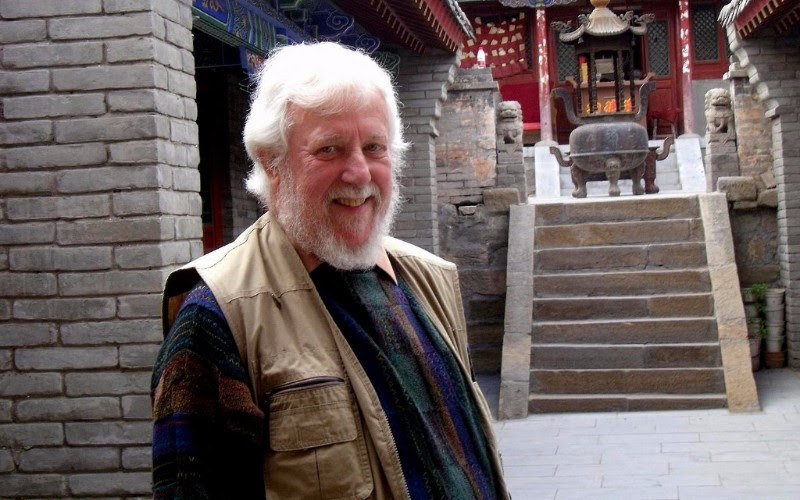
UNWTO awards Geoffrey Wall the Ulysses Prize for Excellence in the Creation and Dissemination of Knowledge in Tourism
The UNWTO Ulysses Prize for Excellence in the Creation and Dissemination of Knowledge recognizes the remarkable work of Professor Geoffrey Wall on several issues, but particularly on tourism and climate change. The Prize will be bestowed on Professor Wall during the UNWTO Awards Ceremony to be held on 18 January 2017 in Madrid on the occasion of FITUR, the International Tourism Trade Fair in Madrid, Spain.
Professor Wall is a Distinguished Professor Emeritus at the Department of Geography and Environmental Management, University of Waterloo, Canada, where he has been teaching for more than 40 years.
The Prize has particularly valued Professor Wall’s pioneer research on tourism and climate change and his work on ecotourism and tourism planning. His ecotourism assessment framework and economic impacts assessment models have been effectively implemented in parks and protected areas in many parts of the world. Most of his research has been undertaken in Asia, with a recent emphasis on natural and cultural heritage and indigenous people.
A prolific writer and researcher, Professor Wall has published more than 200 publications in refereed journals, more than 100 book chapters and about 20 books and monographs. He has also supervised more than 100 graduate students; many of them are now leaders in the tourism field.
Professor Wall has also considerable involvement in practical international planning initiatives. For example, he contributed to the Bali Sustainable Development Project, directed two Five-Year projects in China on coastal zone management in Hainan, and on eco-planning and development; and has been an advisor on many tourism planning initiatives, from provincial to local level, especially in China. He is currently assisting the preparation of the application for UNESCO World Heritage sites in Western China.
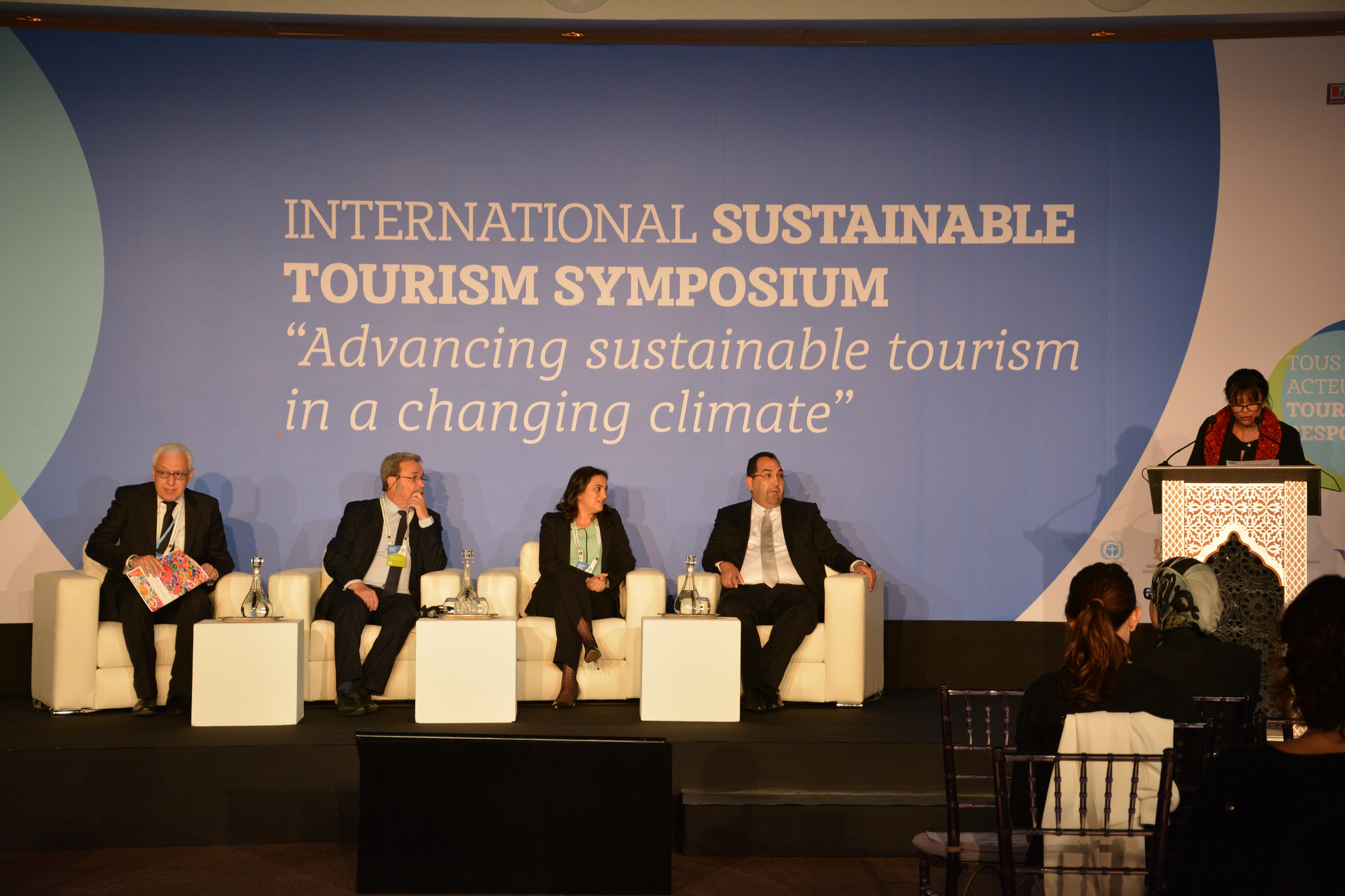
Tourism committed to fight climate change – COP 22
The role of tourism in implementing the Paris Agreement was on the table on the occasion of the 22nd Session of the UNFCCC Conference of Parties (COP22). The International Symposium of the Sustainable Tourism Programme of the United Nations 10-Year Framework of Programmes on Sustainable Consumption and Production (10YFP), held during COP 22, discussed how to advance Sustainable Tourism in a Changing Climate.
The Symposium aimed at increasing awareness on tourism and climate change-related issues and encourage the sector to engage in actions that reinforce national commitments to the Paris Agreement and the 2030 Sustainable Development Agenda.
“The tourism sector is both a vector and a victim of climate change and we are fully committed to contribute to reach the objectives set by the Paris Agreement. This event was essential to advance this agenda, especially the discussion on measurement and reporting requirements as a basis for identifying and prioritizing climate action in tourism”, said UNWTO Secretary-General, Taleb Rifai.
“Sustainable tourism creates opportunities and assembles partners to help transform the industry towards low emissions and more efficient and less polluting operations. We must make tourism and every other industry contributor to our climate change action and a sustainable future”, said Patricia Espinosa, UNFCCC Executive Secretary, in her video address to the event.
The event focused in particular in the need for partnerships with the private sector and the role of sustainable transportation to accelerate climate action in tourism.
“Climate change can only be addressed if actors from all parts of society – governments, businesses, NGOs and consumers – make a global and broad shift towards sustainable consumption and production patterns. Accounting for 10% of GDP, 7% of the world’s exports and one in 11 jobs, tourism is one of the main economic sectors in the world, and as such has to be at the core of this essential transition,” said Charles Arden-Clarke, Head of the 10YFP Secretariat.
The International Symposium was part of the 3-day COP22 Tourism Side Events organized by the 10YFP Sustainable Tourism Programme and hosted by the Ministry of Tourism of Morocco. The Programme is a partnership led by UNWTO with the Governments of France, Morocco and the Republic of Korea as co-leads, with support of the 10YFP Secretariat at UN Environment, aimed at accelerating the shift towards more sustainable consumption and production. It was followed by a networking event involving financial institutions on sustainable tourism as well as by the Annual Conference on Saturday 12 November, where members of the network exchanged experiences and discussed priorities and next steps in the 10YFP Sustainable Tourism Programme.

Economic and national security a common objective: UNWTO/WTM Ministerial
Ministers of Tourism from nearly 60 countries and industry leaders gathered at the Ministers’ Summit organized by the World Tourism Organization (UNWTO) and World Travel Market in London to discuss how to grow cooperation in safe, secure and seamless travel. The inclusion of tourism in crisis and emergency structures, travel advisories, perception and coordination were pointed as main issues to be addressed. Participants agreed that economic and national security can and should be a common objective.
The 10th edition of the Minister Summit was held under the title ‘Tourism and Security: Promoting Safe and Seamless Travel’. The event discussed the various risks affecting travel and tourism – health scares, natural disasters, geopolitical changes and terrorism – and called for a full integration of tourism into national crisis and emergency structures.
The lack of a coordinated approach and the need to set crisis management systems were pointed out as the biggest challenges to safe, secure and seamless travel. Participants stress that security is a shared responsibility among public and private sector and across government administrations at all level. In this respect, they recalled the need to build global standards and recognition of mechanisms such as passengers’ information.
“Underpinning our discussions is the conviction that advancing safe, secure and seamless travel requires national and international coalitions between all tourism and security stakeholders as well as between public and private sectors” said UNWTO Secretary-General Taleb Rifai,
Perception was pointed out as one of the main obstacles in crisis management and recovery. In this respect, ministers and private sector called for increased capacity in crisis communication and management as well further collaboration among public and private sector and the media stressing that communication should be clear on ‘what the situation is’ and ‘what is being done’.
Participants unanimously agreed that “what happens in any destination affects all others” and that as such the international community needs to work further together on travel advisories and increase dialogue between destinations and source markets. “Tourism brings jobs and economic growth; and if we fail to support destinations affected we fail to create social stability and peace” said participants.
The Summit was chaired by CNN International’s Becky Anderson.
Summit Speakers: Mark Tanzer, Chief Executive, Association of British Travel Agents (ABTA); Nina Brooks, Head, Security, Airports Council International (ACI); H.E. Obediah Wilchcombe, Minister of Tourism of the Bahamas and Chairman of the Caribbean Tourism Organization (CTO); Beatrice Maille, Director General, Consular Policy Bureau, Global Affairs Canada, H.E. Mohamed Yehia Rashed, Minister of Tourism, Egypt; Vijay Poonoosamy; Vice President International Affairs; Office of the President & CEO; Etihad Airways; Paul Steele, Senior Vice President Member and External Relations, Corporate Secretary, International Air Transport Association (IATA); H.E. Vinod Zutshi, Secretary, Ministry of Tourism, Government of India; Ryoichi Matsuyama, President; Japan National Tourism Organization (JNTO); H.E. Edward Zammit Lewis, Minister of Tourism, Malta, Fritz Joussen, Chief Executive Officer, TUI; Aldo Lale-Demoz, Deputy Executive Director and Director of the Division for Operations, UN Office on Drugs and Crime (UNODC); Isabel Hill, Director, National Travel and Tourism Office, United States Department of Commerce and David Scowsill, President and CEO, World Travel & Tourism Council (WTTC).
